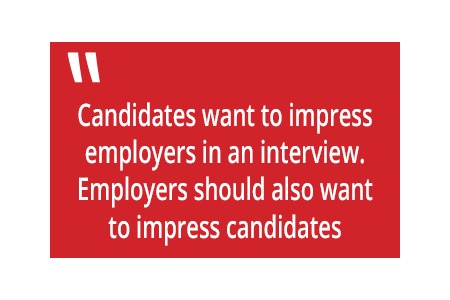This website uses cookies to improve your experience. We\'ll assume you\'re ok with this, but you can opt-out if you wish. Read More

Everyone who has ever applied for a job is familiar with the preparation that goes into performing well during the job interview. You review your resume, study the company, prepare answers to certain expected questions – all the usual. But interviewers should also prepare for interviews and come in with a game plan.
Before we get into what you should be doing during interviews with candidates, let’s talk about what your goals are during an interview. Yes, you want to fill an open position with the best candidate possible, but that’s not all and you need to think deeper.
Does the candidate have the skills and background necessary for the job? This is the bottom line of every interview. Though not always the deciding factor, you need to know that a candidate is capable of performing the duties required of the position or at least learning in a reasonable timeframe whatever skills and knowledge are missing.
Does the candidate work good in a team and love what you do? This requires that you be intimately familiar with company culture and the kind of attitude you want your employees to have, and particularly employees in the specific role you’re trying to fill. Think soft skills. If the position is in customer service, the candidate must be friendly and communicate effectively.
Will the candidate leave the interview excited about what you do, who you are and how you work? Not only will this have a positive impact on candidates themselves, but it will create a positive persona for your business among workers in the industry. With time, this create effective employer branding, where in-demand talent starts seeking you out. Just remember it all starts on an individual level with every candidate you meet.

With these goals in mind, here are the 4 things you should do in every interview with every candidate:
Tell candidates clearly who you are, what you do and what your goal for the future is. Think of it almost as a sales pitch – you’re trying to generate excitement, in this case to join the project and be a part of something special. Everyone wants to work for a meaningful purpose, but they also want to work somewhere where the atmosphere and conditions are good for them. That’s why you should also describe company culture and maybe even give candidates a quick tour of the office.
Follow the principles of #1 above, but get more specific, summarily discussing the team candidates would be working with and the tasks they’ll be asked to perform. Highlight opportunities and benefits they might enjoy as well as the responsibilities they’ll be expected to shoulder to imbue the position with a sense of importance.
Now that you have the candidates’ interest, it’s time to find out more about them. In order to determine what kind of employee a candidate will be and whether or not they will fit into the company and position, ask questions like: “Describe a situation in which your manager wasn’t available when a problem arose. How did you respond and what were the results?” or, “What did you learn about yourself at your last job?” Even if you get semi-prepared answers, their choice of how to answer can tell you a lot about who they are and how they might perform at work.
It’s important to have a sense of awareness of your own thoughts as you engage with a candidate. It’s a lot of juggle in your head at once, but keep a running internal dialogue in which you examine your own reaction to candidates’ answers in real time. Finally, ask yourself repeatedly if you have all the information you need. If not, keep asking questions.
In the end, conducting an interview is an art form in-and-of itself. No one can hand you an exact script to read off, but by maintaining a consistent mindset and approach during interviews, you can do yourself a lot of favors, even ensuring that you’ll be attracting better and better talent down the road for future recruitment.
We’re committed to leaving organizations and their people in a truly better place –
more changeable, more engaged and better equipped for creating a better future.
This website uses cookies to improve your experience. We\'ll assume you\'re ok with this, but you can opt-out if you wish. Read More